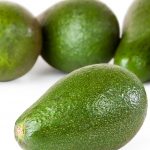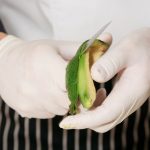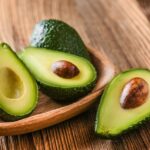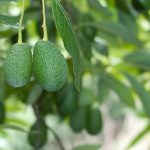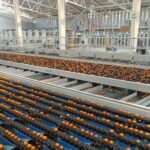Mexico remains avocado king, amid Latin American focus on growth

Mexico reached avocado production volume of 1.9 million tons during 2023, according to Mexico's Ministry of Agriculture, making it the main avocado producer in Latin America and the world.
Meanwhile, according to FAO, Colombia has become the second largest avocado producer, with production close to 980,000 tons, followed by Peru, with over 770,000 tons, and Chile with 150,000 tons.
Mauricio Auger, an international avocado consultant, analyzed the state of regional avocado production. He said Mexico has built and adopted the right tools to lead global exports.
Mexico has technical irrigation systems, he explained, and they don't rely on importing pollinators, because of the large number native insects that do the job.
"The problem they have is water accessibility, since wells are 800 meters to a kilometer and a half deep," Auger said.
Auger said he has observed a tendency in Mexico to update agricultural practices. Part of that practice has involved installing more and more water meters, irrigating by the moisture measurement, rather than by evaporation.
Colombia
In the case of Colombia, Auger said crops grown in warm weather and lower-lying area enjoy better conditions. But they face the challenge of overlapping with Peru's harvest period.
"So the problem is that the commercial value of the Colombian avocado is not so high," Auger said. "For the farms that are above 2,300 - 2,400 meters above sea level, conditions are more adverse for avocado growing."
These producers export in November, and the product has sold for between $1.30 to $1.70 a kilo, he said.
Auger also pointed out that Colombia has no domestic market for Hass avocado because there is not much knowledge of the variety. Green-skin avocados are more well-known in Colombia.
From an agronomic respect, he said Colombia is limited by soil conditions and tends to lack have the necessary depth for avocado development.
"The challenge they have is establishing orchards," Auger said. "The soils must be worked with ridges because of the percentage of clay they have. In addition, they must work with automatic irrigation, so that the fertilizer applied to the trees is not lost."
Peru
Regarding Peru, Auger said, "avocados grow very well in Peru, despite the fact that they have soils with a low percentage of moisture retention and with no organic matter."
He explained that the climate is very favorable for production. The flowering, however, experienced significant stress, due to excessive flowering, which hinders overall production.
In general, he said Peruvian avocados set well on the tree and offer good quality.
Chile
In the case of Chile, Auger pointed out the limited range for avocado production due to weather conditions, mainly cold and frost.
"In Chile, there is a tendency for producers to go further and further south because the challenges that Chile has are water and nutrition management," Auger said.
Projection
Auger said he has also seen promising developments in Ecuador's avocado sector.
"I think they have an important potential," he said. "From what I have seen, I believe that Guatemala could also have significant potential."
In the main producing countries, Auger said, Colombia shows great growth potential.
"But they have to solve the problems of orchard establishment," he said.
On November 21, the Global Avocado Summit organized by the Chilean Avocado Committee and Yentzen Group will be held at the Casino Monticello event center in Chile.


















